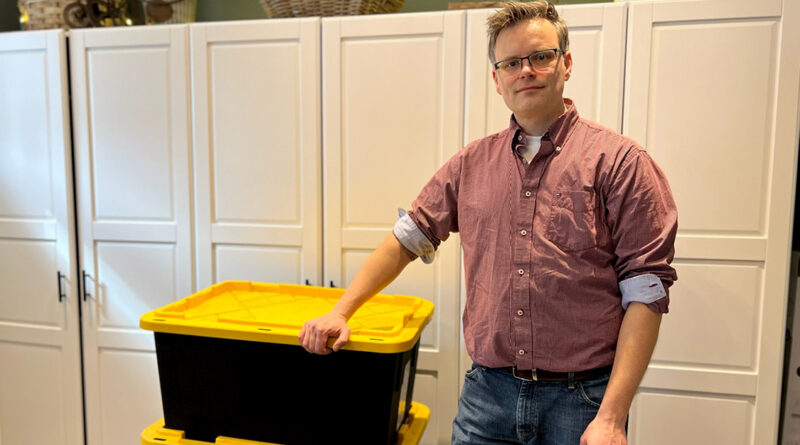Doctor Without Border
By John Swartz
Dr. Jeff Pitcher sounds like the kind of guy anyone would like to have as their family physician. Bright and cheery voice, quick to laugh – just the kind of guy you would expect to decide to head right into places of danger.
Friday he’s leaving to travel to Medyka, Poland, which is located east of Krakow and west of Lviv, Ukraine near the border. He’s going to spend a week helping Ukrainian refugees with their medical needs as they flee the murderous Russian army invading their towns and cities.
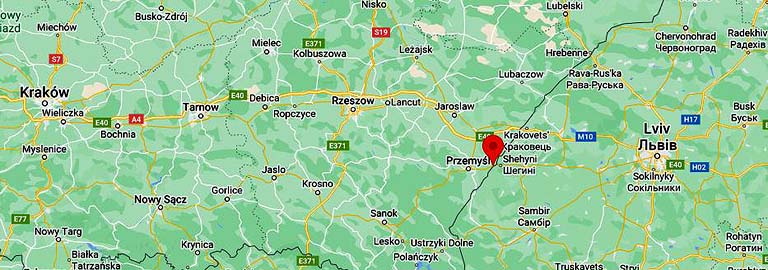
Medyka (red marker) is between Krakow and Lviv.
“It’s a border crossing; the most widely used border crossing and has received the most refugees from Ukraine. The people have been travelling for 4 or 5 days, or even longer from the eastern part of Ukraine where there’s some devastating bombing, and they arrive to this border crossing and there’s a sense of relief because they are in a place of safety,” Dr. Pitcher said.
This is not the first time he’s left Orillia to go where he thinks he’s needed.
“I’ve done quite a bit of work with the Salvation Army disaster team. I went down to September 11th, to Ground Zero, I went down to Mississippi after hurricane Katrina to help out. I’ve always had a desire to help people in their time of crisis. I saw the call for doctors.”
That call was from a Twitter post by Dr. Danielle Belardo, a Newport Beach, California Cardiologist who is in Medyka right now. She’s been posting about conditions and photos of the people she is working with and treating.
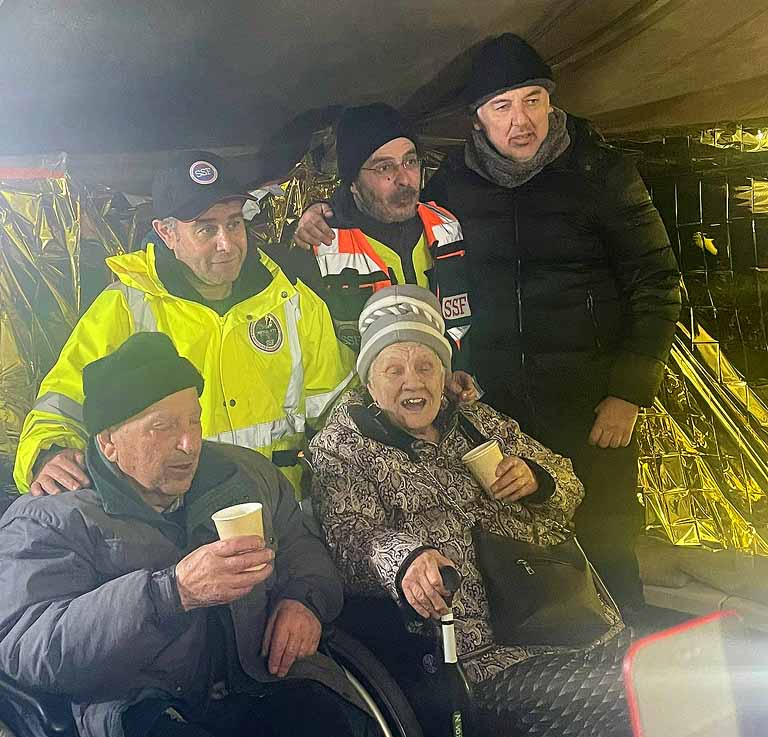
Holocaust (photo by Dr. Danielle Belardo)
“As with everybody else, I was reading about the terrible situations that are going on in Ukraine and everyone wants to do something, so I thought, well, I’ve got the skills; I’m able to take some time off work if I want to do this. There is no better place I’m needed than to help these people at their time of crisis,” he said.
He and doctors, nurses and paramedics from around the world have been flocking to Ukraine and neighbouring states to do what they can to help. Many people are familiar with the group Doctors Without Borders. This is similar but goes by a different name.
“It’s actually Israeli based, but they use a French name Sauveteurs (Sans Frontieres).” In English the name translates to Rescuers Without Borders. It is based in Paris and is affiliated with the original Israeli organization called Yekirei Hatzalah Yehuda.
“On the other side of the border crossing, the first tent they come to is the medical tent where there is basically a mini clinic set up, like a MASH/ mini emerge type of thing. Anyone that’s in need of medical attention can get seen first thing as soon as they cross the border, which is great. I’ll be stationed at that medical tent for the week,” Dr. Pitcher said.
One would think the medical personnel would be ready for people with sore feet, legs, backs from carrying everything they now own, and fatigue. High in proportion on the list of need it would seem is mental health.
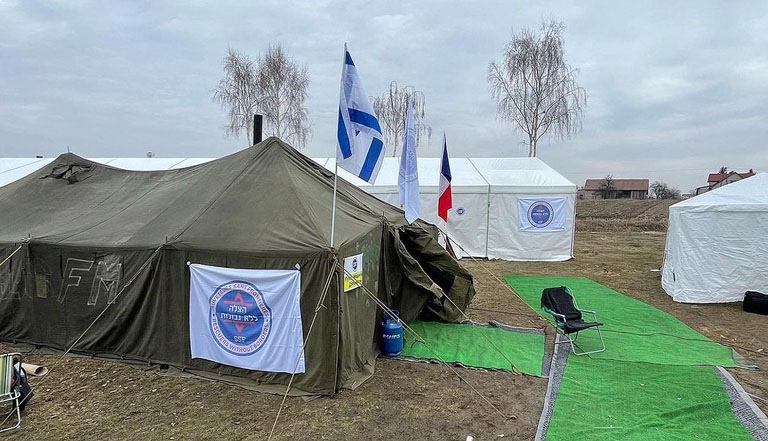
“I expect that there’s going to be a lot of traumatized families and traumatized children going through a situation where they’ve uprooted their whole life left in an instant with their backpack full of whatever they can and leaving everything behind; their jobs, their work, their friends, their social circles and having to start over again, not even knowing where they are going. They’re coming across the border not knowing where they are going to end up,” Dr. Pitcher said.
“There’s going to be a lot of traumatized people for sure and just even giving them some comfort, whether it be spending time talking with them, giving them a hug, letting them know they are in a safe space.”
He is aware of other medical needs he’ll be faced with.
“There have been resuscitations at the border. People have crashed at the border. There have been two cases where they had to resuscitate people. There’s many cases of gastro (gastroenteritis), people didn’t have access to clean water,” he said. “A lot of the kids are getting dehydrated from gastro so they are in need of urgent hydration.”
Aware of this, he has been collecting medical supplies to bring with him.
“As far as physical items I’m kind of at capacity. I have 25 large boxes I’m taking and they are full of medical supplies,” he said.
He’s also started a fundraising account with Give Send Go. At time of writing 77 people have donated $15,957 toward his $18,000 goal. He’ll be buying more supplies In Europe.
“When I’m there we’ll see what the needs area and any money that’s left over, that will be donated to the Salvation Army. They’ll send it right into Ukraine where they have got shelters set up, they’ve got feeding stations set up throughout the country. In addition the Salvation Army has refugee centers set up around Poland, Romania, Czechia,” he said.
Some of what he’s bringing with him; defibrillator kits, pulse oximeters, blood pressure cuffs, gauze, IV kits, ambu bags for ventilating patients, and various drugs will be used in Medyka and some will go to Lviv.
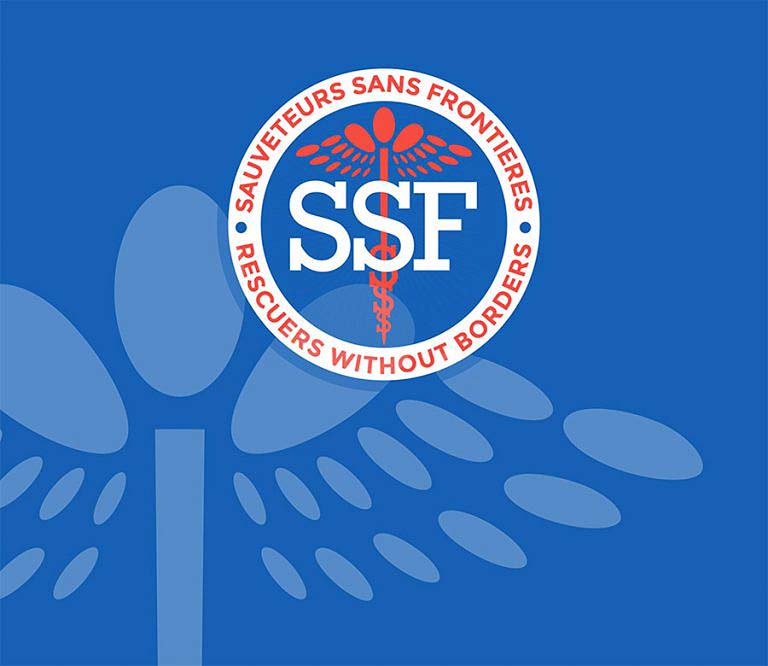
“I’ve got to find some sort of driver to take it into Lviv, so that’s going to be interesting. Lviv isn’t that far, which is in Ukraine. It’s 85 kilometers, but as you could imagine it’s a dangerous thing to be going there. There are convoys going into Lviv with humanitarian aid,” he said.
Where he is headed is not in the war zone, but it’s close enough. He had an interesting response when asked if he’s packing a flak jacket.
“What’s a Flak Jacket? I do not have one. I don’t know where you buy them. As far as safety goes, I feel like Poland is a very safe place at this present moment. That’s not to say it won’t change because they’re talking about getting involved,” he said.
There are people who are concerned he’s travelling to Europe for this purpose, including his family.
“(It’s) very hard on the family. Certainly they have their concerns with safety going so close to the border. My wife (Laura) read about a bombing that was 25 kilometers away at the army base in Ukraine. That didn’t reassure her very much.” Dr. Pitcher said. He has three children ages 9 months, 4 and 8.
“Certainly they are going to miss me for the week. They’re asking me not to go,” he said. “The 8-year-old understands a little bit more. The 4-year-old doesn’t really know. He knows I’m going and I’m going to be away for week. He wants to come with me.”
Dr. Pitcher will be coming home March 26.
(Photos Supplied)

